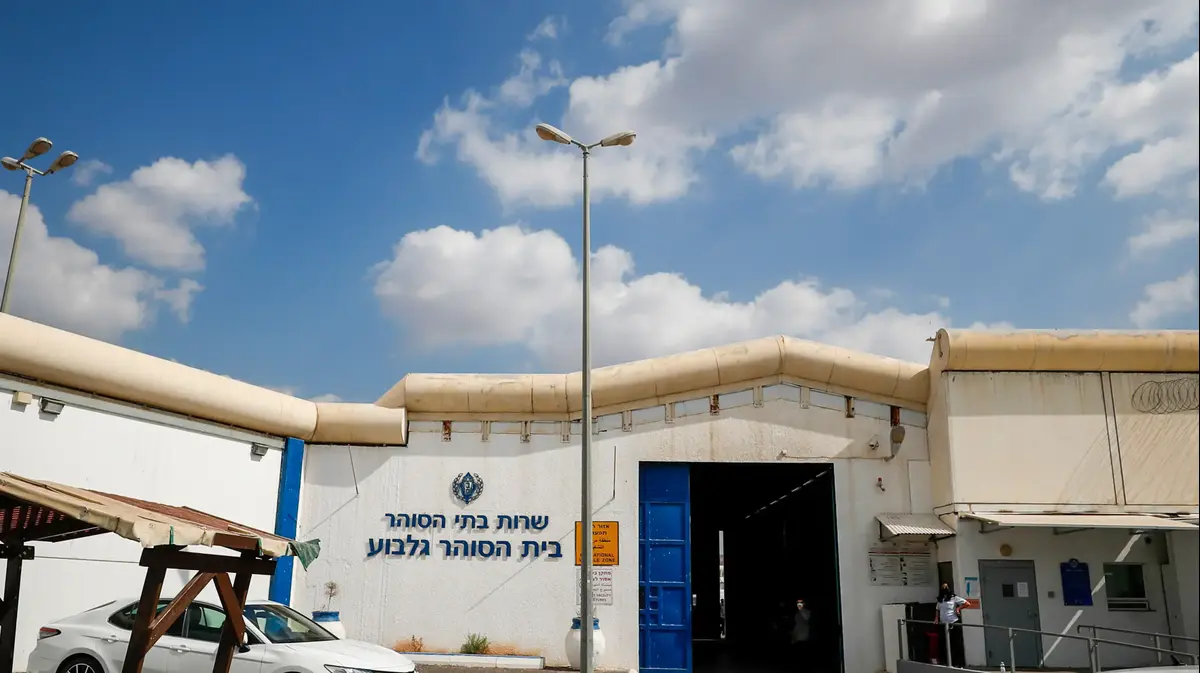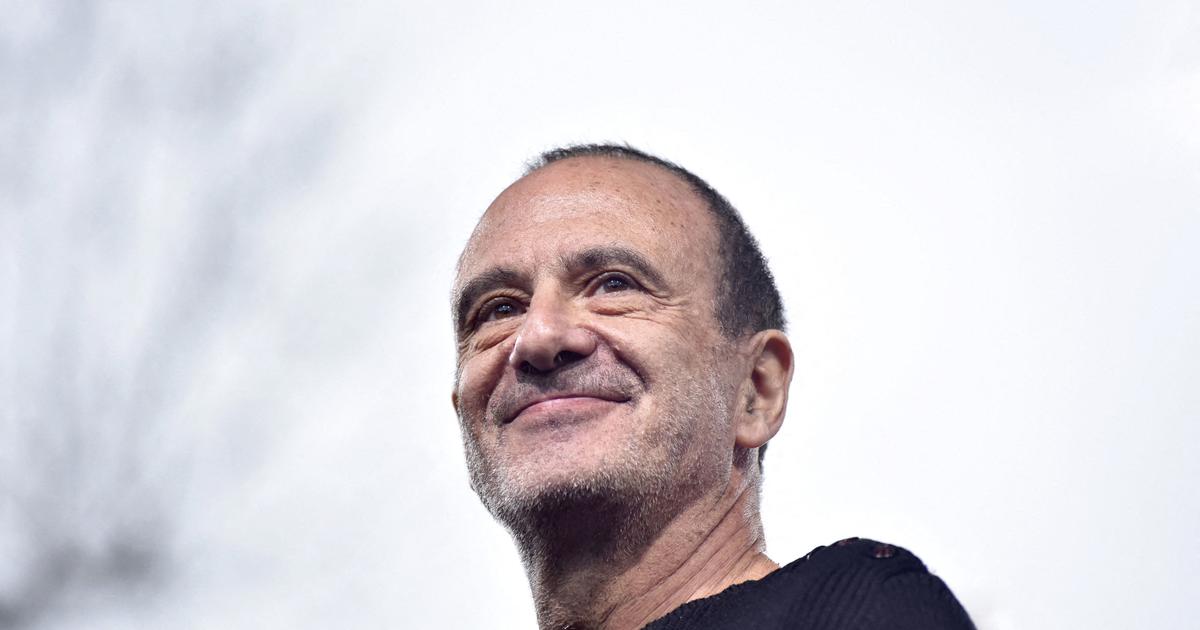Assures Emanuel (fictitious name) that he is innocent. That former enemies of his family orchestrated everything so that he ended up in jail. That the charge for which he was convicted, sexual abuse of a minor, seems abhorrent to him. And that it is an injustice for him, he expresses his sentence: 14 years incarcerated in the Pademba prison, the central correctional facility in Freetown –and hell on earth– located in the capital of Sierra Leone, an African country with barely eight million inhabitants and one of the poorest in the world. “My house was always open to everyone. That's why they saw the girl several times enter there. But I didn't do anything wrong. It was a trap, a revenge”, he justifies.
The almost 2,000 prisoners of Pademba repeat that “I am innocent” ad nauseam. Few admit to having committed the misdeeds for which they remain locked up. Murders, robberies, smuggling and human trafficking, kidnappings... But in prison, as happens in the country, one crime stands out above all others. The prison is full of rapists and sexual aggressors who find their main victims to be girls. And Sierra Leone too. According to recent reports from the local police, in the first four months of 2021, 974 crimes of this nature were reported. It is not a very high average if one takes into account that, in 2018, the authorities registered some 8,500 cases. In February 2019, after a brutal gang rape of a five-year-old girl, President Julius Maada Bio declared a national emergency "for the rape of girls."
Yusuf (not his real name) has scars on his head, an extremely thin body, marks that look like poorly healed insect bites on his legs and arms, sunken eye sockets, and a few yellowed and blackened teeth.
He is around thirty, although he appears to be much older because his health is fragile and he seems punished.
He says he has been in Pademba for almost five years.
And that he still has another five to serve the sentence of ten that a judge imposed on him for raping a minor in 2015. He has stopped singing the song that he is innocent and admits that he had sex with that girl.
But he strongly believes that justice has not been proportional and that the crime he committed does not deserve so much time in prison.
"Why do you say the judge was unfair to you?"
―Because my crime lasted 30 minutes and my sentence, ten years.
"And the girl?"
Do you know what became of her?
“No… I don't want to know anything.
That girl destroyed my life.
rape culture
Amida Aminata Sandy is 14 years old. He was born in Bo, the second largest and most populous city in Sierra Leone after Freetown, but soon moved to Lakka, a district of the capital, where he has lived for as long as he can remember. Her life, in reality, was not very different from that of other girls and boys in her country. Her parents separated when she was a little girl and she stayed with her mother. But one day, the woman, who suffered from diabetes, passed out. Amida says that she spent three months in a coma in the hospital and that she moved to a family home inhabited by her aunt. The first few weeks I had a very normal routine. “My father paid for my school, so I went, studied and then returned home, where I helped with whatever they asked of me. The relationship with my aunt was not good, but at first everything went well,” he says.
Shortly after arriving, Amida continues, her aunt brought two friends to work on some tasks, two kids who had nowhere to spend the nights, so they used their own home.
Something that is not unusual in a country where not even working frees you from absolute poverty;
Almost 53% of the Sierra Leonean population must live on less than one and a half euros a day.
Here, the lack of resources is something natural and present in any daily event.
"They used to sleep in the living room and we used to sleep in a bedroom, so we didn't see each other much," explains the girl.
22% of reported violations reach the State Attorney General's Office.
And only 1% ends in a conviction for the accused
One day, any of the holidays in June 2020, one in which Amida's aunt had left the house early and the girl, already 13 years old, rested peacefully in her bed, alone, everything changed forever. She remembers it this way: “One of those men entered the room. I told him to go away, but he only replied that if I screamed he would kill me. Then he took me by the hand and arm, covered my mouth and sexually abused me. I fought and fought and fought. But he was holding me and I wasn't able to protect myself or do anything. When it was over, I saw my own blood on the sheets. Then he showed me a knife and told me he would kill me if I told anything."
Amida heeded the threat and did not discuss the rape with anyone.
Not even with her aunt.
“I thought that even if I promised her it was true, she wouldn't believe me.
I even thought they would kick me out of that house for being a liar,” she says.
It wasn't until she saw her father and his wife again that the girl dared to speak.
It was September 2020. The next step was to go to the police and report it.
The agents referred her to a shelter that the Salesian NGO Don Bosco Fambul has in Freetown for girls who have been through similar situations, where she will stay at least until her case is clarified.
“I am now awaiting trial, although no one knows where the man is.
Has run away.
I feel fine;
I just want justice to be done”, concludes Amida.
A routine impunity
The cases of rapists or sexual abusers who flee or are impossible to locate after committing these crimes are not an exception in this nation.
An internal study that Don Bosco Fambul carried out in 2019 after visiting all the Family Support Units in the country – the local police unit in charge of infractions that have minors as victims – showed that only 22% of the cases denounced reached the State Attorney General's Office.
And, that of that percentage, only 1% ended in a conviction for the accused.
“Sierra Leone should have recognized that state of emergency many years ago.
In my opinion, the declaration was positive because it called on the population to open their eyes and say: 'Something is happening', says Salesian missionary Jorge Crisafulli, director of the NGO.
Crisafulli explains that girls like Amida, minors in general, are the most vulnerable part of Sierra Leonean society. That problems usually hit them with more virulence. That would explain, for example, the statistics that state that 28% of young women between the ages of 15 and 19 have a child or are expecting one or that 39% of girls marry before turning 18 and 13% do before the age of 15. The Salesian also speaks of the psychological consequences, of those deep wounds but invisible to the naked eye. “The trauma of rape remains forever. When it happens, it is important to create an environment of resilience where the girl regains confidence in herself, in others, where she can make decisions, speak in front of the group…”.
The cases that Crisafulli and his team have faced in recent years are multiple, as well as their nature and origin. He mentions one: “There is a girl who came with her baby, who was abused by her teacher. We reunited her with her grandmother, but she has had to change schools because the teacher has returned to teaching at the school where he sexually assaulted the girl. The man has recognized that the boy is his son, but she tells me that she has to go to the market in the morning, to sell, to feed the boy”. And there is also the case of a teenager who was sexually assaulted by a well-known politician from her city, for which the girl will never be able to return home. And that of another who was raped by three young people, although two of them escaped and no one has been able to take them to court. So a long and painful etcetera.
File image of inmates at Pademba prison in Freetown, Sierra Leone, in November 2006. Lynsey Addario (Getty Images)
“Corruption plays a very negative role. There are files that simply disappear. Some victims report cases of rape even within the police environment, what happens is that they try to cover it up. The girls are able to point out the agents in particular, to locate the places, but, of course; what is the voice of a poor person here in Sierra Leone? None”, concludes the Salesian. And that mistrust of local authorities and politicians is not unjustified. Again, the samples are again as clear as they are numerous. Perhaps the most notorious occurred in October 2020, when the country's president suspended his Minister of Agriculture and the secretary of the Vice Presidency for appearing in internal reports on corruption and demanded the return of thousands of euros to another hundred people. ,whom he accused of having stolen during the last ten years.
Changes in the laws
“It is not that Sierra Leone has more violations than in neighboring nations, but rather that here the determination to put an end to this problem is much greater,” justify sources from the Family Support Unit of the Ross Road police station, in charge of half west of the capital.
And they give as an example all the changes that have occurred in local laws since the declaration of that national emergency.
Changes such as the approval of a new law, the
Sexual Offense Act 2019
, which replaces the 2012 and establishes minimum penalties (before there were none and it depended on what the judge on duty decided), new aggravating circumstances for rapists and abusers and even life imprisonment. Or the creation of an exclusive police unit for crimes of a sexual nature. Or the implementation of eight new magistrates who are solely responsible for judging these crimes, which will help speed up the processes.
But changes on paper do not always reach ordinary girls. Anna (not her real name) cries inconsolably sitting on a wooden bench at the Allen Town police station, another of Freetown's districts, half an hour's drive from the Ross Road police station. She is 13 years old and has gone alone a few hours ago to report that a man has raped her. While he tells his story, an agent dressed in civilian clothes takes his statement by hand, for which he uses a pen and a couple of sheets of paper. Anna knows little about laws, national emergencies and custodial sentences. She is about to start her own battle: to assimilate what has happened to her, to listen and empathize with other victims and to understand that, in her country, her story is not something isolated, that there are too many Annas in the streets of Sierra Leone.
You can follow PLANETA FUTURO on
,
and
, and subscribe
to our 'newsletter'
here
.





/cloudfront-eu-central-1.images.arcpublishing.com/prisa/D3QC6LYSBFDE7F7O7WP4CRVRH4.jpg)

/cloudfront-eu-central-1.images.arcpublishing.com/prisa/OWEBKGYPMVHILADCEF3EJCPHVI.jpg)


/cloudfront-eu-central-1.images.arcpublishing.com/prisa/2C5HI6YHNFHDLJSBNWHOIAS2AE.jpeg)



